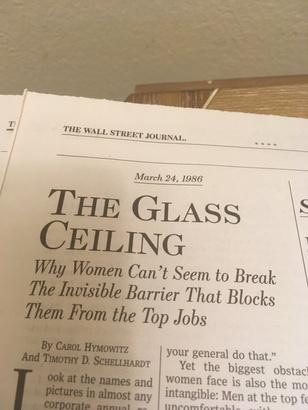
4 minute read
INNOWA
Feminism In Spain
In Spain, several women have been changing the concepts of women ' s traditional roles at home, taking care of children and the elderly and doing housework
Advertisement
Spain has had Catholic roots since its beginnings and we cannot forget that in the Catholic religion, although in the Middle Ages and before that, in Roman times, women enjoyed rights that, with the arrival of the Renaissance, they no longer enjoyed, it was not until the 15th century that women officially had a soul, the basis for not having equal rights.
It is for this reason of injustices and unbalanced situations that, in a not so ancient era, it was necessary to use a man (father or husband, normally) to dispose of the estate (in the case of widows, if a brother or son did not take charge, an executor would do so, but she herself could not dispose of her own estate).
At the beginning of the 20th century, great feminist women emerged: María Lejárraga (better known as María Martínez Sierra), Margarita Nelken, Clara Campoamor, or Emilia Pardo Bazán, are some of the most relevant figures.
As for the education received by a woman, the Public Instruction Law of 1857, although it made it compulsory for girls to attend primary school, did not fail to exclude them from subjects such as Industry, Commerce, Geometry and, of course, Sex Education
October 20, 1918 marks a milestone in the history of feminism in Spain: on that day the National Association of Spanish Women (ANME) was born, the first feminist organization at the state level. The articulation of the movement in our country, which has become a global reference, took longer than in other European countries
Recognition of women ' s parental rights over their children
Elimination of the crime of adultery for women.
And "all labor legislation that has to do with equal salaries for men and women " .
Carmen de Burgos y Seguí (Almería, December 10, 1867-Madrid, October 9, 1932) was a Spanish journalist, writer, translator and women ' s rights activist of the Silver Age. She used male pseudonyms such as "Perico el de los Palotes", among others. She is considered a member of the generation of '98 and the first professional journalist in Spain and in Spanish as editor of the "Diario Universal" of Madrid.
Also, as the first war correspondent
The Republic intensifies the presence of women in the universities, but the Second Republic is basic, since the change in the regulatory framework notably favors the rights of Spanish women:
Recognition of women ' s suffrage
Recognition of civil marriage and divorce
We cannot forget Clara Campoamor, she was a lawyer, writer, politician and defender of Spanish women ' s rights. During the Second Spanish Republic she created the Women's Republican Union and was one of the main promoters of women ' s suffrage in Spain, which was included in the Republican
Constitution of 1931 and was exercised for the first time in the 1933 elections. Because of the Civil War she had to flee Spain and died in exile in Switzerland.
During the Franco Dictatorship, there was a regression of many of the rights achieved, a woman could not travel alone (except with paternal or husband's consent), nor open a bank account.
In the 70's a feminist movement began to take shape, since women, although submissive to the patriarchy, had been able to study, be educated and take courage. Franco died in 1975 and two weeks later the "First Women's Liberation Day" was celebrated in Madrid (still in hiding).
Up to that moment, there was talk of the Feminism of Equality, but it encountered the Feminism of Difference. Currents that in the 90's were one, moment in which they began to work on an agenda for the vindication of women ' s rights in different spheres.
In 1986 the term "Glass Ceiling" was coined in The Wall Street Journal, to talk about the "invisible barriers" that highly qualified professional women encountered (and still do) and that prevent them from reaching higher levels. And it is in these areas that Feminism begins to work on an agenda: the parity agenda.

But there are two more areas, in addition to the Glass Ceiling, that Victoria Camps mentions in her book "Women's Century": inequality in domestic life and gender violence. Gender studies reach the universities, critical theories of feminism are developed and feminist militancy not only reaches the streets to defend women ' s rights but goes beyond and Feminism becomes Global: it speaks of Universal Human Rights.
In 2007 the Equality Law was enacted in Spain, but it does not provide a solution to the issue of real equality. In addition to different feminist movements, it should not be forgotten that there are also women who work for equality and who claim a different work than the one promoted by most of the current feminist movements One of these references is Alicia Rubio, a writer, professor and politician from Madrid who has written books such as "Cuando nos prohibieron ser mujeres... y os persiguieron por ser hombres. To understand how gender ideology affects us " , as well as "Feminism without complexes", where, as the lawyer Yobana Carril points out, "In Spain feminism is fighting a battle that has already been won, it does not seek an equality that already exists, it seeks historical revenge.
Today's feminism wants women who are fragile and dependent on the State".
Info Box
The most important feminist associations in Spain:
AMMAR (Association of Migrant Women for Race)
The Association of Women Jurists Themis Association of Women Journalists and Writers (AMPE)
The Association of Women in Science and Engineering (AMCI)
The Association of Progressive Women
BIBLIOGRAPHY http://www mujeresenigualdad com/La-mujer-no-tenia-alma-en-la-Edad-Mediaes 1 2569.html http://www.mujeresenigualdad.com/ https://www vocesvisibles com/historia-del-feminismo-en-espana/ https://www epe es/es/igualdad/20220304/8-m-inicios-movimiento-feminista-13325341 https://www elconfidencial com/espana/2019-03-08/8m-espana-feminismo-machismo-parobrecha-salarial 1864982/ https://www celtiusabogados com/ https://european-union europa eu/institutions-law-budget/institutions-and-bodies/institutionsand-bodies-profiles/eige es



